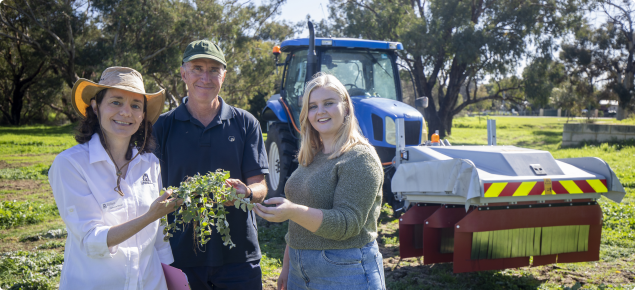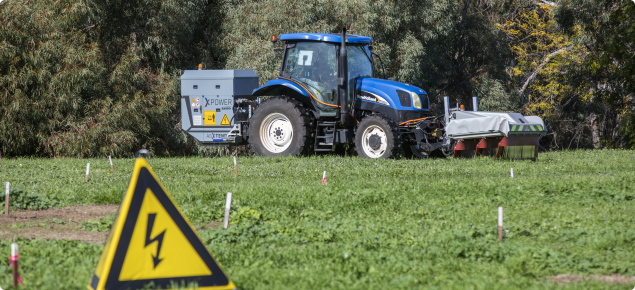Start date: 13/04/2023
Finish date: 30/08/2024
Description:
Weed control remains the one of largest threats to global food security and environmental integrity globally, and herbicides are extensively used to keep weeds at bay. However, the use of such chemical measures is currently under threat from widespread development of herbicide resistance and increasing social pressure to reduce chemical use both across Australia and globally.
Glyphosate is at particular risk and is the most widely used herbicide for weed control in agricultural, industrial and urban areas. Such loss of herbicides threatens the successful control of a wide range of nationally distributed weeds in a variety of scenarios across Australia.
This has ensured the need to consider alternative management options, including electric weed control. Electric weed control devices deliver a high voltage current to the weeds and their root system via electrodes that are in direct contact with the plants. This energy transforms into heat and bursts the weed’s cells, killing it or supressing its growth.
DPIRD research scientists have been trialling electric weed control in an Australian-first project. This project will assess the efficacy of the electric weed control machinery in a variety of trial sites that represent the various conditions experienced in Western Australia.
The objectives are to assess:
- The efficacy of electric weed control on Australian weeds
- The impact of electrocution on the biology of plant pests in Australia
- The range of situations in which this technology may be of use in Australia
- The practicality of this technology in Australian systems.
Funding partners:
CRDC-GRDC-Wine Aust
Project code:
DAW2303-002OPX


